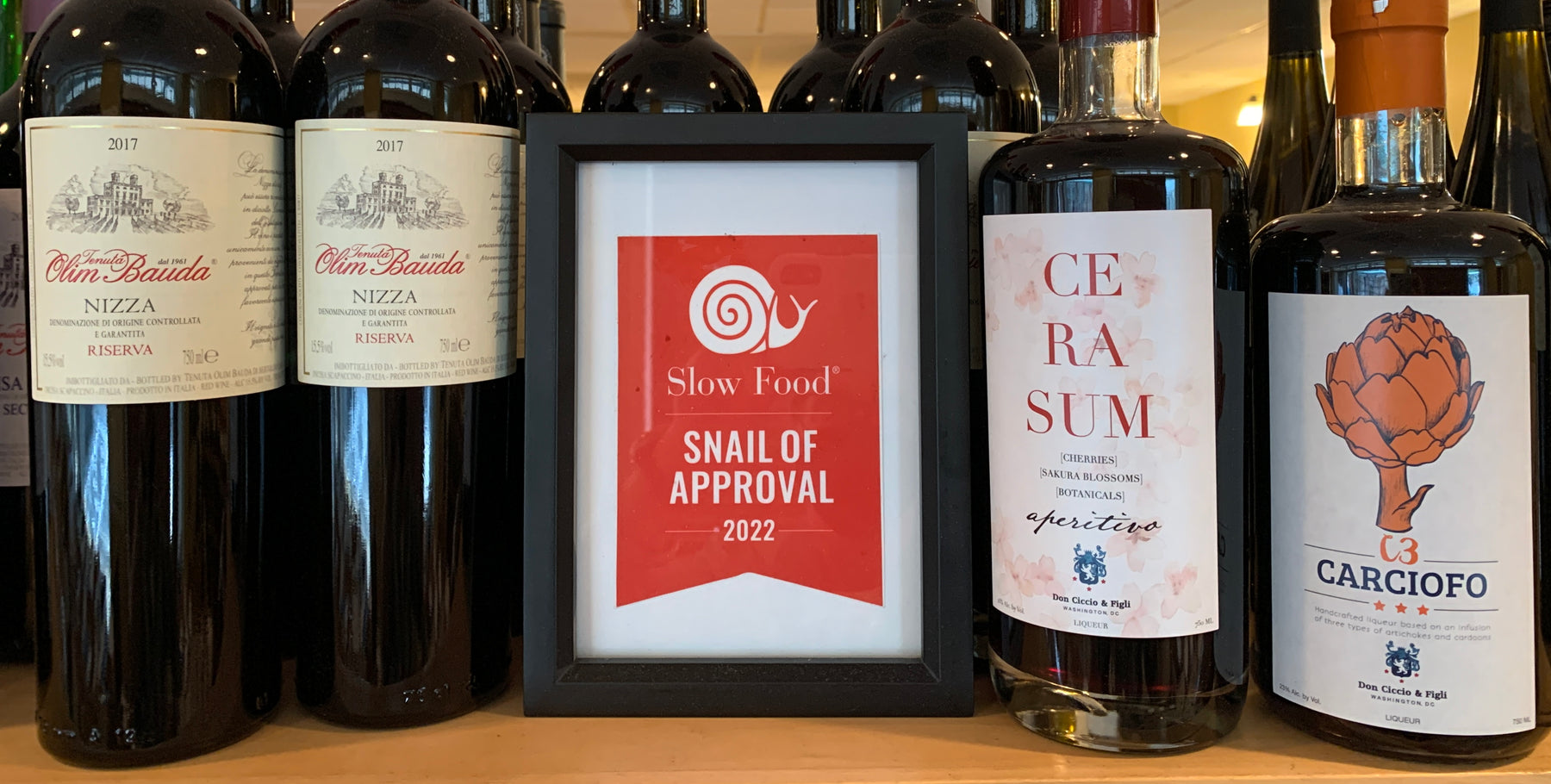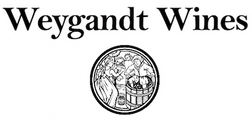
Weygandt Wines Awarded Slow Food DC's Snail of Approval
If you’ve been inside the shop the last several months, you might have noticed our Slow Food DC Snail of Approval certificate.
What is Slow Food?
The roots of the Slow Food movement took hold in Italy, sprouting from concern about the fast growing popularity of fast food. The instigating incident was the opening of a McDonald’s near the historic Piazza de Spagna in Rome in 1986, just adjacent to the city’s iconic Spanish Steps.
Worried that the proliferation of fast food would threaten local restaurants and culinary traditions, Italian journalist Carlo Petrini organized a protest against the fast food chain’s entry into the Italian market. Instead of signs, Petrini armed protesters with bowls of penne, declaring, “We don’t want fast food…we want slow food!”
While Petrini’s actions certainly reflected the question of taste, his larger purpose touched on a range of interrelated issues: supporting and protecting small growers and artisanal producers, safeguarding the environment, and promoting biodiversity.
This ambitious agenda led to the creation of the Slow Food movement in 1989, with the goals of defending regional food traditions, “good” food, gastronomic pleasure, and a slow pace of life. On a more practical level, this translates to changing the world through food that is good, clean, and fair for all.
Follow the Snails for Good Food and Beverages
Today, Slow Food is active in more than 150 countries, with more than 170 chapters and 2,000 food communities in the United States alone.
Washington, DC’s local chapter—Slow Food DC—works to promote local artisans, farmers, and flavors through a range of activities that promote and support local producers, sustainable food production, nutrition education, and food access.
One of those programs is the Slow Food Snail of Approval award, a recognition given to food and beverage establishments that pursue and practice Slow Food values in their business.
The Snail of Approval is awarded by local chapters based on six areas: sourcing, environmental impact, cultural connection, community involvement, staff support, and business values.
Wines from the Slow Lane
How does Weygandt Wines fit into this program? Although we do not produce wine ourselves, owner Peter Weygandt partners specifically with producers whose work reflects Slow Food values.
At a minimum, this means applying sustainable approaches in the vineyard and the cellar and more often, organic and biodynamic practices. A conscientious winemaking approach also take into account regionally specific varietals (Timarosso in the Piedmont, for example) and culturally important techniques (Vin Jaune in the Jura).
Equally important is a high commitment to quality—the “good” in good, clean, and fair. There should be no adulteration of the wines at any stage of production, even if that means less wine in poor growing years. As an agricultural product, this is a reality of both seasonal variations and an increasingly unpredictable weather environment due to climate change.
But Weygandt producers do not supplement low yields with inferior grapes or alternative products. In fact, the emphasis is on interfering as little as possible in the winemaking process, which sometimes means more a more physical “hands-on” approach in the vineyards.
German biodynamic producer Peter Bernhard Kühn of Weingut Peter Jakob Kühn notes that “The decision to pick all of our grapes by hand is not only a choice of quality, but also a choice of respect and empathy with the vines.” What ends up in your glass are wines from small, family-owned, producers, with whom Peter has cultivated personal relationships, some of which span decades.
Changing Practices One Bottle at a Time
Understandably, some might question logic of importing wine from Europe to the United States. It’s certainly not local, and wine transport is unquestionably a drag on the environment.
But there is an argument for supporting—and cultivating—an understanding of, and for, cultural practices and traditions that are not our own. There are strong ties between our glasses, the planet, culture, politics, and each other.
Even if buying wine is not a sustainable act (although that would be nice), the purchase does tell the importer and the producer that the product has value.
Your purchase validates the choices that were made in terms of sustainable viticulture and conscientious cellar practices. A declaration, of sorts, that the literal physical work that went into making that bottle of wine should continue.
That’s a lot of responsibility to place on a bottle of wine.
But the Slow Food movement also taps into the values of connection and enjoyment that we derive from food and beverages.
There is an innate pleasure that comes from opening a bottle of wine, and just that simple act can mean any number of things—taking the time to reflect on the day, savoring a meal, or marking a special occasion.
Maybe there’s a story behind the bottle, or maybe there will be a story after the bottle is shared. We all have a role to play in the story, and Weygandt Wines loves to help write and tell those stories, one bottle at a time.
Raising a Glass to the Future
We are delighted to bring interesting, high quality, and—above all—delicious wines to the Washington, DC area, as well as to support small sustainable producers.
Our sincere thanks to Slow Food DC for the recognition! If you’re interested in finding more businesses that support the Slow Food philosophy, check out the national map of Snail of Approval winners on the Slow Food USA website.

